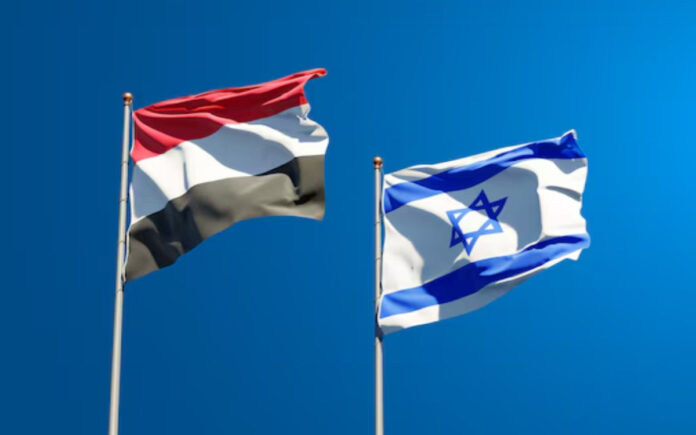Tel Aviv: The Israeli Air Force (IAF) recently executed a series of targeted airstrikes on strategic military installations in Yemen, specifically honing in on Houthi-controlled sites. Among the targets were critical infrastructure components, including power plants and a vital seaport, which are believed to facilitate the transfer of Iranian weapons and supplies to the region.
In a post on X, the Israeli Defense Forces (IDF) stated, “The IAF struck military targets belonging to the Houthi terrorist regime in Yemen in response to their recent attacks against Israel.” The IDF further detailed that the strikes targeted facilities used by the Houthis for transferring Iranian weapons, military supplies, and oil to the region.
Reiterating its commitment to the safety of Israeli citizens, the IDF emphasized, “Over the past year, the Houthis have been operating under the direction and funding of Iran, and in cooperation with Iraqi militias, in order to attack the State of Israel, undermine regional stability, and disrupt global freedom of navigation. The IDF is determined to continue operating at any distance—near or far—against all threats to the citizens of the State of Israel.”
According to the Houthi-run health ministry, the Israeli strikes resulted in the deaths of four people and left 29 others injured. Following the IAF operation, IDF Chief of Staff Lt. Gen. Herzi Halevi reaffirmed Israel’s capability to target enemies at greater distances. “This isn’t a message, it’s an action,” Halevi said after the strikes on Houthi forces in Yemen. He added, “We know how to reach very far, we know how to reach even farther, and we know how to strike there accurately.”
Also Read | Drone Assault on Kyiv: Ukraine’s Military Successfully Defends the Capital
Israel’s Defense Minister Yoav Gallant, after the IAF’s strikes on Yemen, remarked, “I visited the IAF command and control center, where I followed the strike conducted today against the Houthi terrorist organization. Our message is clear – for us, no place is too far.”
Meanwhile, tensions escalated in the Middle East as Hezbollah launched missile strikes targeting Haifa and northern Israel. In a post on X, the IDF reported, “Once again, more than a million Israelis are running for shelter after Hezbollah fired missiles at Haifa and northern Israel.”
These strikes by Israel occurred after the IDF executed precision strikes on the Lebanese capital, Beirut, on Friday, resulting in the death of Hezbollah leader Hassan Nasrallah. Following Nasrallah’s death, Israeli Prime Minister Benjamin Netanyahu issued a stern warning to Iran’s Ayatollah regime, asserting that those who target Israel would face “consequences” and that “no location” in Iran or the Middle East is “beyond Israel’s reach.”
Also Read | Taiwan Receives $567 Million in Defense Aid from Biden as Tensions with China Escalate
Netanyahu described Nasrallah as the “main engine of Iran’s axis of evil,” stating, “Nasrallah was not just another terrorist; he was the terrorist. He was the axis of the axis, the main engine of Iran’s axis of evil. He and his people were the architects of the plan to destroy Israel. He was not only operated by Iran; he also frequently operated Iran.”



